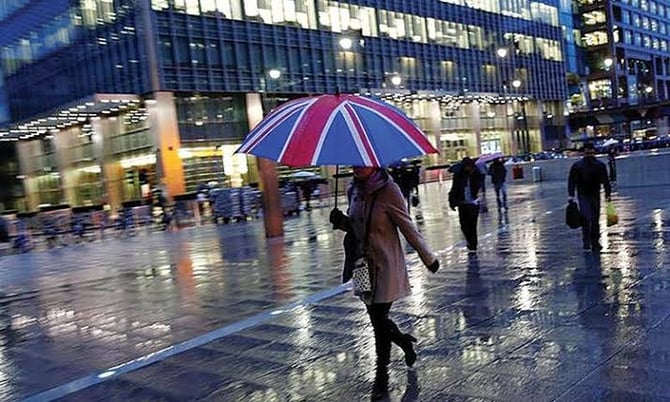UK Economy Enters Recession Ahead of Elections

The United Kingdom has officially entered a recession, posing a challenge to Prime Minister Rishi Sunak's economic growth agenda. The nation's gross domestic product (GDP) decreased by 0.3% in the last quarter of 2023, after already experiencing a 0.1% decline in the third quarter.
This data pushed the country into a recession, defined as two successive quarters of economic contraction. The UK joins Japan as the two major nations currently holding this dubious distinction.
The UK’s economic downturn was influenced by declines in key sectors such as manufacturing, construction, and wholesale, despite minor gains in hospitality and vehicle rentals.
The Office for National Statistics (ONS) revealed that the UK's GDP grew by a mere 0.1% throughout 2023, the weakest annual growth since 2009, excluding the pandemic-affected 2020. This stark slowdown contrasts with the 4.3% growth in 2022, highlighting a year of economic stagnation.
The timing of this recession is particularly troublesome for Sunak, coinciding with local elections and potentially impacting the Conservative Party's standing against the Labour Party in upcoming national elections.
What Does This Mean for Me?
Analysts note that while the recession is shallow, it underscores a prolonged period of stagnation. This economic backdrop is critical as the UK's finance minister, Jeremy Hunt, prepares for the annual budget announcement, amidst expectations of tax adjustments despite low growth and high government debt.
Hunt acknowledged the negative impact of the highest interest rates in 26 years, aimed at curbing inflation, but remained optimistic about the economy's recovery, emphasizing the importance of tax cuts for work and business to foster a stronger economy.
More News

India’s Inflation Dip Strengthens Case for RBI Easing
16 hours ago

Europe Rallies as Shutdown Eases, Earnings Impress
1 day ago

Germany’s Trade Surplus Slides as Imports Outpace Exports
2 days ago

Markets Rally as US Moves Toward Ending Prolonged Shutdown
3 days ago

China’s Export Decline Highlights Strain in US Trade Relations
6 days ago
.webp)
Canada’s Budget Falls Short of Economic Breakthrough
1 week ago

OpenAI and Amazon Combine for AI Powerplay
1 week ago

Saudi Arabia Channels Oil Wealth into a $3 Billion AI Power Play
1 week ago